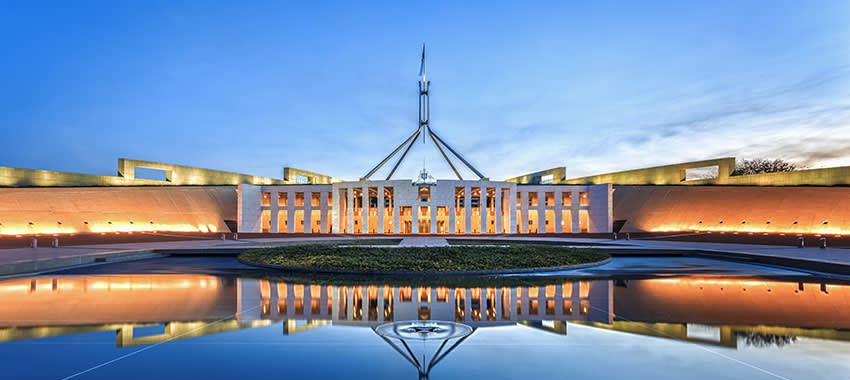
Ahead of the release of the federal budget 2024/25, calls are mounting for more support to be given to small businesses.
The Albanese government will hand down its federal budget for the 2024/25 financial year this evening (14 May), with many hoping the federal government would provide additional support for small and medium-sized enterprises (SMEs).
While reports have been circulating that the government will extend the instant asset write-off (that enables businesses with turnovers of $10 million or less to deduct $20,000 from all eligible assets) for another year (the scheme is set to expire on 30 June 2024 in its current form), this has not yet been confirmed by the Treasurer.
However, Jim Chalmers has “indicated a willingness to use the tax system to incentivise the kind of private investment that we need in the future of our economy”.
“We want to grow our economy into the future. We want to build a more productive and dynamic and innovative and inclusive economy. And that requires a lot more private investment. And the tax system has got a role to play there in incentivising that investment and that private capital. And that’s one of the levers that we are prepared to pull,” he said.
SME lenders have been setting out their hopes for the budget 2024/25 given the challenges facing SMEs.
Beau Bertoli, co-founder and chief revenue officer at SME lender Prospa, said that the lender had recently commissioned research from YouGov that said that 22 per cent of SMEs don’t have any cash reserves.
Moreover, 73 per cent had noticed “behavioural changes” in their clients/customers over the past year as a result of cost-of-living pressures, with 41 per cent now spending less frequently.
“As SMEs struggle to keep their head above water, 57 per cent are hopeful for tax cuts, while 46 per cent would like to see more rebates or subsidies on business expenses, including energy,” Bertoli said.
“As Australian SMEs emerge from the highest month on record for business insolvencies, support measures from the upcoming Budget will be critical to their survival.”
Non-bank lender Banjo Loans has also put forward a wish list for SMEs, saying that they had been “short-changed” in recent years when it came to concessions, arguing that big businesses were usually prioritised instead.
Banjo chief executive Guy Callaghan said: “The focus is always on the big end of town because they have larger tax contributions and have the staff and money to really push their case to the government.
“SMEs are the lifeblood of the economy, but they’re too often the afterthought of governments who are distracted by easy wins.
“Small businesses can also be an easy hunting ground for more tax revenue, leaving them vulnerable when times are tough and potentially subject to more taxes.”
But with high inflation, high interest rates, difficulties finding labour, and a reduction in demand across many sectors, Banjo said supportive budget measures would be pivotal for many small businesses.
Banjo has therefore said it hopes that the budget would:
- Reduce red tape for property development projects.
- Establish more funding rebates, such as the asset finance write-off to help support economic growth and provide access to opportunities that SMEs may not have otherwise considered.
- Provide energy rebate concessions for SMEs, indexed to revenue size.
- Reduce tax on SMEs – particularly in their early stages of development – to stimulate small businesses.
- Provide more support for training and skills development.
Callaghan said: “If SMEs don’t get some love from the government they will continue to struggle, which will lead to a further slowdown in the economy and a longer road to recovery.
“Simple ideas such as funding rebates encourage growth and activity and enable businesses to consider opportunities, they would not otherwise have entertained.
“Support for SMEs should be considered an investment rather than a cost to the Budget bottom line. It’s an investment in the engine room of the Australian economy, which will boost Australia’s competitiveness on a global scale.”
Housing a ‘big focus’ in budget 2024/25
Several measures from the budget 2024/25 have already been revealed, with new measures announced over the weekend to help Australians “build, rent and buy”, as part of the Homes for Australia plan, including:
- $1 billion “directed towards” crisis and transitional accommodation for women and children fleeing domestic violence and youth under the National Housing Infrastructure Facility.
- $1 billion of funding for states and territories to build infrastructure that could support new homes and for additional social housing supply (such as roads, sewers, energy, water, and community infrastructure).
- $9.3 billion via a five‑year National Agreement on Social Housing and Homelessness for states and territories to combat homelessness, provide crisis support, and build and repair social housing.
These build on the announcement that the Albanese government would earmark $90.6 million to boost the number of construction workers, with $88.8 million for 20,000 additional Fee-Free TAFE training places to increase the pipeline of workers for construction and housing.
Reacting to the news, Mark Haron, executive director at Connective, said: “Owning a home is a goal for many Australians, and any measures that make that more achievable in the current challenging environment are welcome. We’ve seen a recent increase in borrower interest, but also recognise the ongoing cautious approach.
“The mid- to long-term outlook is promising with the construction worker boost and policies announced over the weekend. This could ensure sustainable new housing activity, potentially reducing future price pressures.
“We encourage brokers to stay informed and be ready to guide clients or prospects on the additional support available come 1 July 2024.”
[Related: Instant asset write-off threshold may be limited, warns tax specialist]

